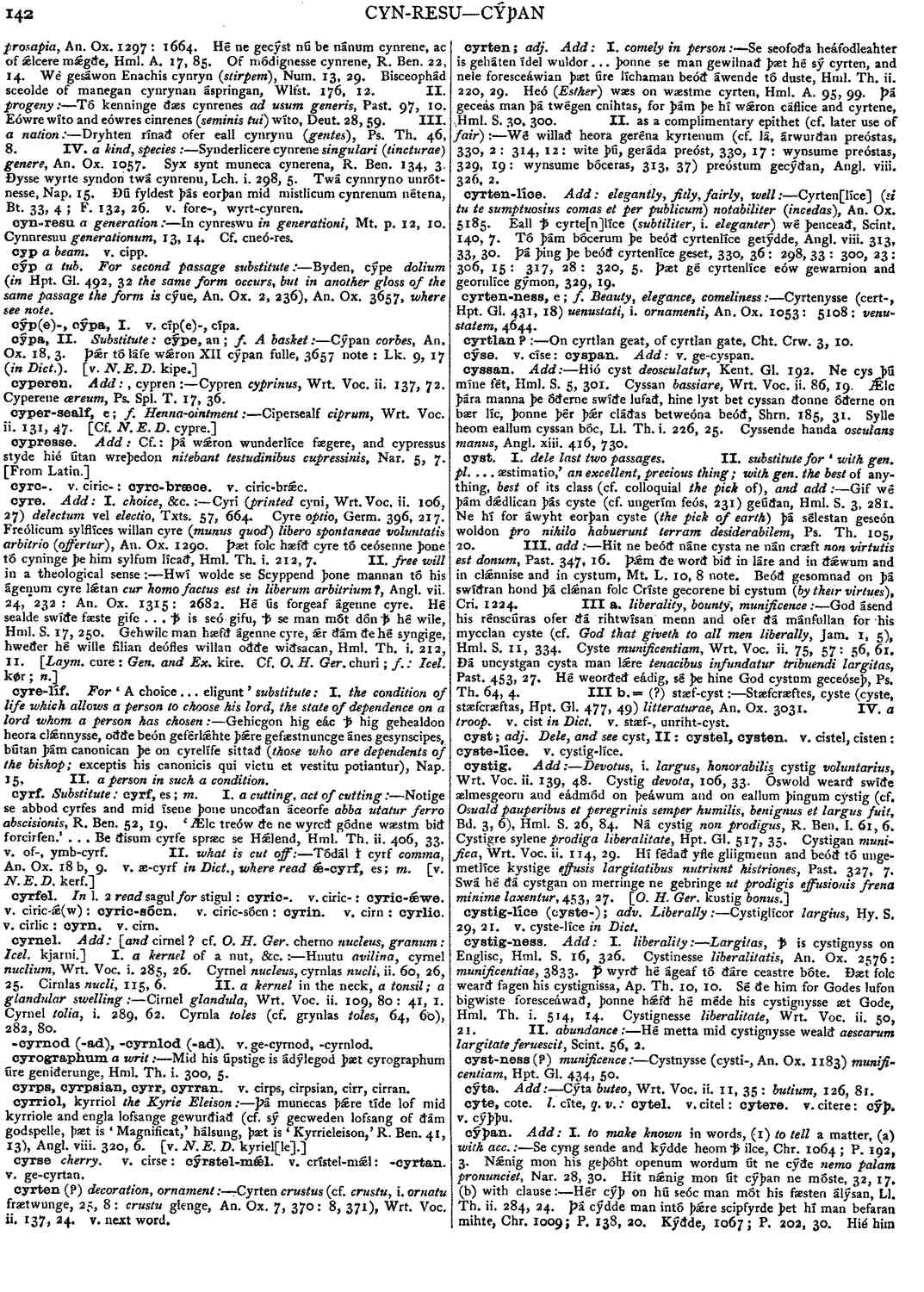cýþan
-
Se cyng sende and kýdde heom ꝥ ilce,
- Chr. 1064; P. 192, 3.
-
Nǽnig mon his geþóht openum wordum út ne cýðe
nemo palam pronunciet,
- Nar. 28, 30.
-
Hit nǽnig mon út cýþan ne móste,
- 32, 17.
-
Hér cýþ on hú seóc man mót his fæsten álýsan,
- Ll. Th. ii. 284, 24.
-
Þá cýdde man intó þǽre scipfyrde þet hí man befaran mihte,
- Chr. 1009; P. 138, 20.
-
Kýðde,
- 1067; P. 202, 30.
-
Hié himcýþdon þæt hiera mǽgas him mid wǽron,
- 755; P. 48, 18.
-
Ypte and cídde
ederet,
- Wrt. Voc. ii. 32, 5.
-
Tó cýðenne
intimandum,
- 112, 3.
-
Cýþende
indicans (somnium ),
- An. Ox. 2139.
-
Cýþendes
disserentis, i. narrantis,
4364.
-
Cýðeð (priscos tantum cur patres pagina) prodat?, Wrt. Voc. ii. 90, 34. (2 a) to tell about (be, ymbe) :-- Cýþ him ymbe þé
tell him about yourself,
- Hml. S. 3, 561.
-
Þám cnihte cýðan be his Scyppende,
- 3, 27.
-
Ne cýþ ðú witod on wén ðín; wite máran þanc ðæs ðe ðú hæbbe, ðonne ðæs ðe ðú wéne
don't count your chickens before they are hatched; a bird in the hand is worth two in the bush,
- Prov. K. 22.
-
Cýð him mildheortnisse swá swá ic cýðde þé
juxta misericordiam quam feci tibi facies mihi,
- Gen. 21, 23.
-
God cýþæ his sáule mildheortnisse,
- Chr. 1086; P. 221, 21.
-
Ðú wást ꝥ nán mon ne mæg nǽnne cræft cýðan bútan tólum and andweorce,
- Bt. 18 ; F. 58, 29.
Bosworth, Joseph. “cýþan.” In An Anglo-Saxon Dictionary Online, edited by Thomas Northcote Toller, Christ Sean, and Ondřej Tichy. Prague: Faculty of Arts, Charles University, 2014. https://bosworthtoller.com/42505.
Checked: 0